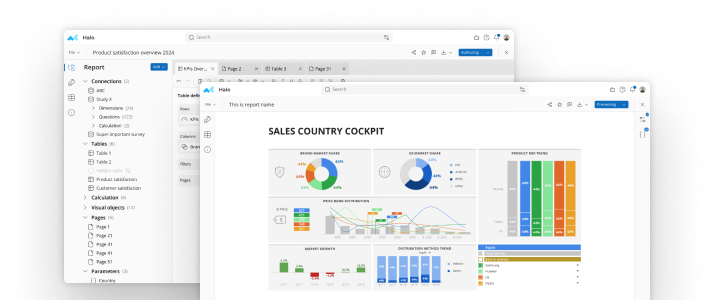There’s little question that investing in product research and subsequent development has the ability to reap dividends for a company, which is why it’s a tactic utilized by so many businesses. Nonetheless, you’re probably intimately aware of the difficulties inherent in trying to obtain definite results, because of concerns with consumer forthrightness, your own poorly-worded questions for a particular demographic, and simply finding the optimal time to pitch surveys to the busy customer. Thankfully, there are some things you can do to facilitate market research data analysis, so that the results return something you can actually work with, to better your product or service.
Compensating for Error in Market Research Data Analysis
You’re well aware of the dwindling rates of helpful telephone and web-based survey responses in the past few years; compounding the issue in the latter platform is the growing prevalence of paid survey-takers who don’t really care about the questions nor their answers to them, and are simply responding to receive a check, or to bolster the consumer rating for a particular product – thereby artificially inflating the results. The success of market research data analysis depends fully on results that represent either a particular demographic, or the general population; therefore such paid responses really harm your product in the long run if you factor them into your marketing and development.With that said, you can always use other, more reliable metrics to “weed out” some aspects of a compilation of responses. For example, it is standard knowledge among information gatherers that people are not generally accurate when reporting how much television they really watch every week; and report figures fully ten or more hours less than the scientifically gathered data from reporting agencies like Nielsen.One (arguably) simple way to combat this tendency could be to pose the question as a daily consumption metric, instead of weekly, to try and eliminate the possible memory bias. Of course, given that people generally watch more television on any single day of the weekend than on any weekday, you may want to ask two separate questions covering this rating. There are other ways to help you gather information for reliable market research data analysis:
- Always keep old survey data with similar questions, so that you can compare new results to these and try to discern what has changed. Important information can be extracted from any discrepancies.
- Try to normalize the manner in which you ask questions regarding purchase satisfaction, level of interest and likelihood to buy the product.
- Provide a standard scale to allow the consumer to express how they feel about the product or service.
The goal of this approach is to maximize the number of legitimate respondents, so that your market research data analysis comes out reasonably accurate. This will, ultimately, be reflected in the future product development and customer subsequent customer satisfaction.
See mTab Halo in Action
Make smarter decisions faster with the world's #1 Insight Management System.




